Research

How to measure the impact of slavery on the early modern economy?
Written by Jan Luiten van Zanden NWO, the National Science Foundation of the Netherlands, has a usually rather boring glossy in which it presents the successes of the research funded by the organization. Recently, however, it published the summary of a debate, significantly printed in black and white, about the importance of the slave trade…
Read more
Inequality: Natural or not?
In a recently published piece in the Proceedings of the National Academy of Science Bas van Bavel (with co-authors from the Environmental Sciences department of Wageningen University) argues that maybe some of what we see in terms of contemporary rampant inequality stems from patterns to be observed in the natural world.
Read more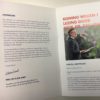
Is there a future for entrepreneurship in the current market economy?
On the 3rd of October 2017 our very own Bas van Bavel gave the King Willem 1 lecture. This was for a gathering of senior figures from the corporate world, as well as the royal couple who were brought together for the announcement of the winner of the Koning Willem 1 prize, the national prize…
Read more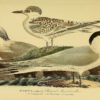
Ecological Armageddon?! What can historians do to help?
By Thomas van Goethem The Guardian raised some eyebrows with headlines such as ‘Warning of ‘ecological Armageddon’ after dramatic plunge in insect numbers’ and ‘Earth’s sixth mass extinction event under way, scientists warn’. The message is clear though: species are disappearing, and it matters! Biologists around the world report species loss across the board. The…
Read more
Dangerous misuse of historical data
UPDATE (01/12/2017): the article can now been accessed in a ‘ahead of print’ online version on the following URL https://wwwnc.cdc.gov/eid/article/24/1/17-0477_article In a recent blogpost on the current outbreak of plague in Madagascar, historian Monica Green wrote the following quote: ‘I see dead people. That’s my job. I’m a historian.’ This is also true for me,…
Read more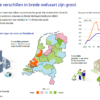
Measuring Welfare Broadly
On Friday the 27th of October, our very own Bas van Bavel and Auke Rijpma presented their collaborative work with Rabobank on a broad measure of welfare, to the provincial council of Brabant. This indicator aims to go beyond standard measures of growth (often construed as GDP) to cover many different variables that effect people’s…
Read more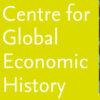
New CGEH WP – Benchmarking the Middle Ages – 15th century Tuscany in European Perspective
A new working paper just went up on our sister site the CGEH (Centre for Global Economic History). Written by Jan Luiten van Zanden, of our own group, together with Emanuele Felice of the University of Chieti-Pescari it explores new estimates of Gross Domestic Product – GDP (so how much an economy produces) for 15th century…
Read more
The cash book of the Netherlands
Guest post written by Dr. Corinne Boter: Most research on the financial history of the Netherlands tells the story from above, looking at the development of formal institutions such as banks and insurance companies. That is why we know very little about how ‘normal’ people used to manage their finances. In the project Kasboekje…
Read more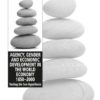
Agency book
Jan Luiten van Zanden, Auke Rijpma and Jan Kok (eds.) recently released the book Agency, Gender and Economic Development in the World Economy 1850-2000, Routledge. This book is the culmination of the research project of the same name conducted at Utrecht University and Radboud University Nijmegen. Working with Selin Dilli, Lotte van der Vleuten and…
Read more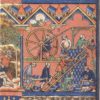
Mills, Cranes and the Great Divergence
Watermills, windmills, building cranes and harbour cranes were the high-tech inventions of the Middle Ages: expensive, but labour-saving machines that could raise labour productivity significantly. In an article in Economic History Review Bas van Bavel, Eltjo Buringh and Jessica Dijkman compare the prevalence of mills and cranes in medieval western Europe and the Middle…
Read more
